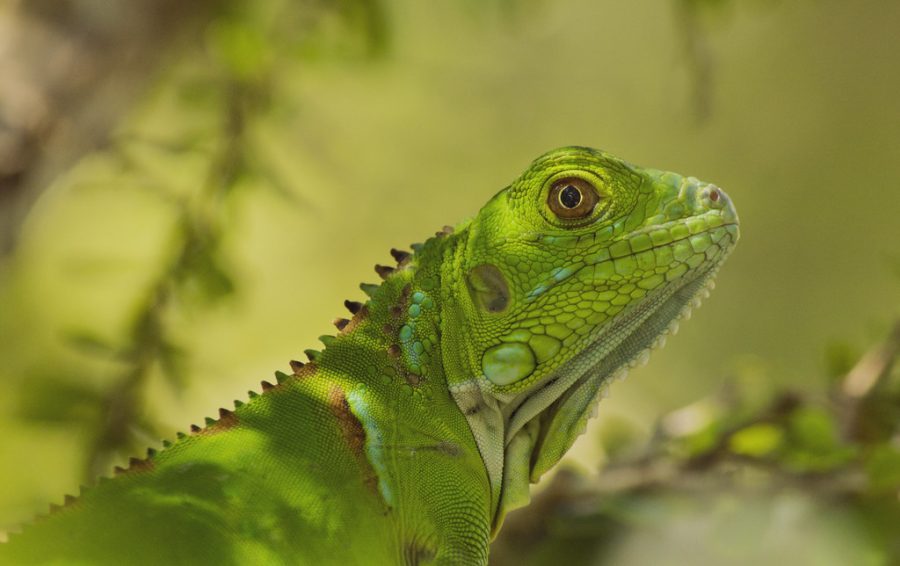Watch Out for Falling Iguanas!
As the weather drops, watch out for falling iguanas.
January 31, 2022
Although it is something Floridians have grown accustomed to in recent years, new residents of Florida might not take the warnings of iguana popsicles seriously. However, one of the unexpected dangers encountered by southern Floridians with cooler weather approaching is getting bonked on the head by a frozen iguana falling from a tree.
Green iguanas are not native to Florida. They have been released into the wild from people who kept them as pets and have become an invasive species. These green reptiles can grow to five feet in length and weigh up to 20 pounds. Due to the imbalance they cause with sensitive ecosystems, the Florida Wildlife Commission (FWC) determined that they were one of the most ecologically damaging non-native species. On April 29, 2921, the FWC added them to the list of Florida’s prohibited species. Those who already had iguanas as pets at that time were able to apply for a “Prohibited Species for Personal Use” permit which would allow them to keep the animal for the remainder of its life.
Beyond the environmental damage, iguanas pose another unique problem. Iguanas spend most of their lives in trees, however, when temperatures drop significantly, iguanas stiffen up and fall out of trees. The FWC states “Iguanas are cold-blooded. They slow down or become immobile when temps drop into the 40s and below. So, they can potentially fall from trees, but they are not dead.”
Although it is more likely to occur in Miami and South Florida, should you encounter a frozen iguana (or be unlucky enough to have one fall on your head), remember that it may be frozen, but is likely still alive. If it regains consciousness and feels threatened, it will not be a happy little lizard and may bite. Take care when walking under trees during a cold snap, especially in South Florida!


